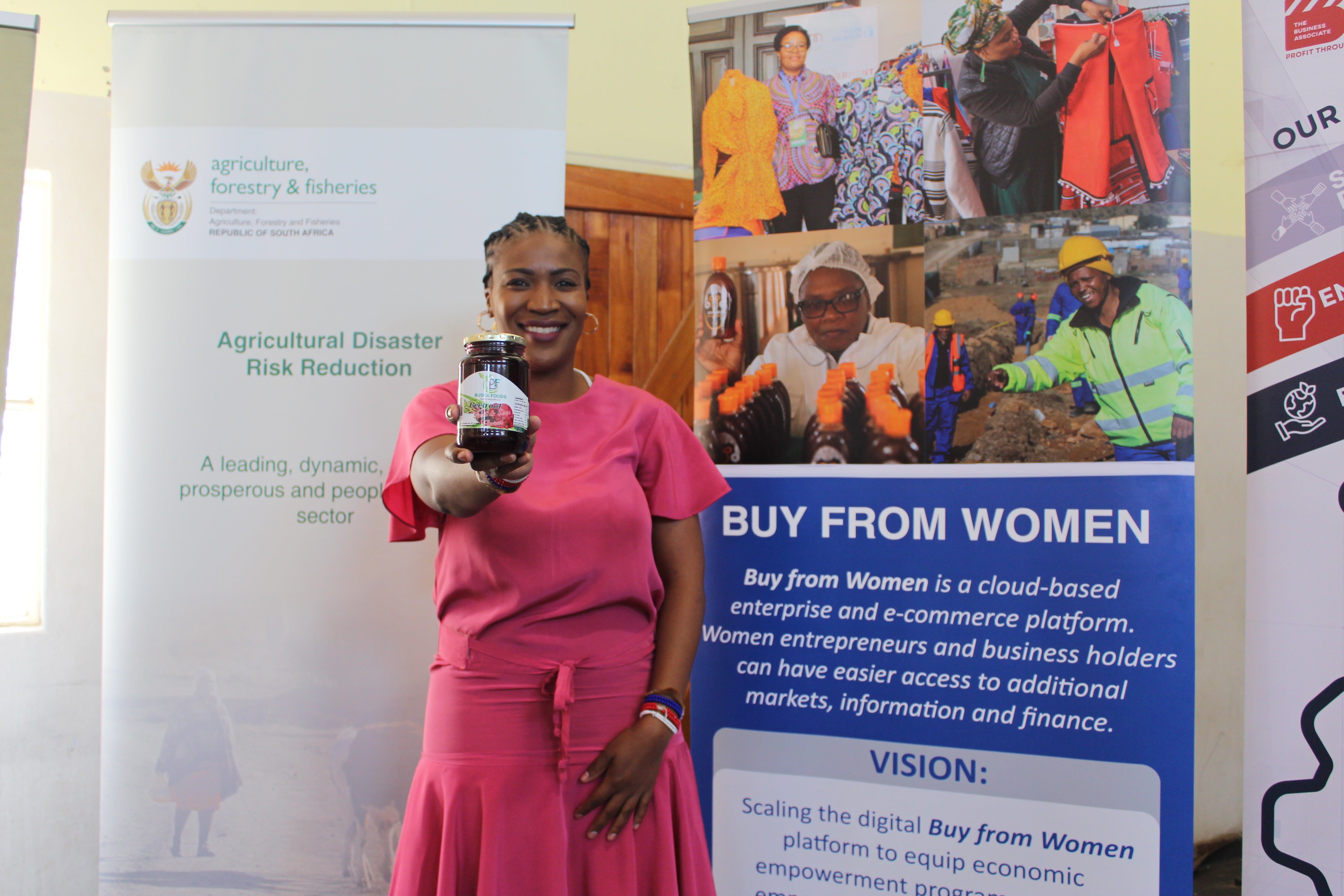In the words of Busisiwe Sithebe: Mentorship and coaching helped me rebuild my business after COVID and set me on the path to success
Date:

I am the founder of Buska Foods, a business specialising in processed vegetables and fresh produce founded in 2017. The catalyst for this venture was a difficult separation from my daughter’s father in 2016, which left me struggling financially. Determined to provide for my daughter and inspired by my family’s business background, I aimed to create a legacy and empower my community, especially women from vulnerable backgrounds.
In 2017, while participating in another incubation programme, I discovered a gap in the market for agro-processing, inspired by my mother’s home canning practices. This revelation led to the creation of Buska Foods, focusing on producing canned vegetables. My previous experience in branding and marketing helped shape the business’s professional approach. Before joining the mentoring and coaching programme for women owned enterprises in 2023, I faced numerous challenges. I had clients but could not deliver to them due to lack of production equipment and loadshedding affecting my capacity to produce. COVID-19 worsened thing for me, everything went bad with my business that I nearly gave up.
When our extension officer for this programme approached me, I was in the streets doing nothing. She asked me, “what are you busy with?”, and I said, “nothing.” She then asked if she could put my name on this programme that’s about to start (mentoring & coaching) and I give my business one last chance. I agreed, and that was my restart button for my business. The programme re-ignited my hope. It offered me valuable mentorship, emphasising the importance of proper financial management and strategic planning. I realised that my business needed better financial management when mentors pointed out that despite having a great product and compliance, my lack of financial records hindered investor confidence. This led me to change my mindset and prioritize maintaining accurate financial documentation to support my business's credibility.
Additionally, I used to approach potential investors out of desperation, overshadowing my business's strengths. This programme helped me change my mindset, prioritise clear communication, and present my business more confidently and effectively.To this day, this approach to clients has helped me secure a partnership with a major retailer, Makro and another potential partnership with Pick’n Pay in my province. I also was able to successfully acquire funding for equipment to scale my production and meet the demand.
The detailed facilitation, and the tailored mentorship that focuses on each individual business was very helpful, I enjoyed it. I have also found the networking opportunities invaluable. Through the people I met here, I have found personal and business development. Personally, I have grown to be more confident and have a community of people I can call anytime when I encounter problems in my business.
Looking ahead, I aim to establish a large-scale production plant that will transfer skills within the community and support more black women-owned businesses. My dream is to create the Buska market, a hub for black-owned products, and an accredited academy for women in agro-processing. I am dedicated to leaving a legacy for my daughter and empowering other women in my community.
The Mentoring and Coaching of Women Entrepreneurs programme is coordinated by UN Women South Africa Multi-Country Office, in partnership with the South African Presidency. Between 2023 and 2024, the initiative was implemented in four South African provinces to help women entrepreneurs take their enterprises to the next level. It is supported by Absa and Standard Bank, which contributes to a multi- sectoral public and private sector initiative, Women Economic Empowerment Programme (WEEP) as part of the Presidential Emergency Plan in response to the scourge of gender-based violence and Femicide (GBVF) in South Africa. One of the critical areas of the five-point plan is economic empowerment of women with the aim to facilitate economic opportunities and interventions that seek to address women’s economic vulnerability.